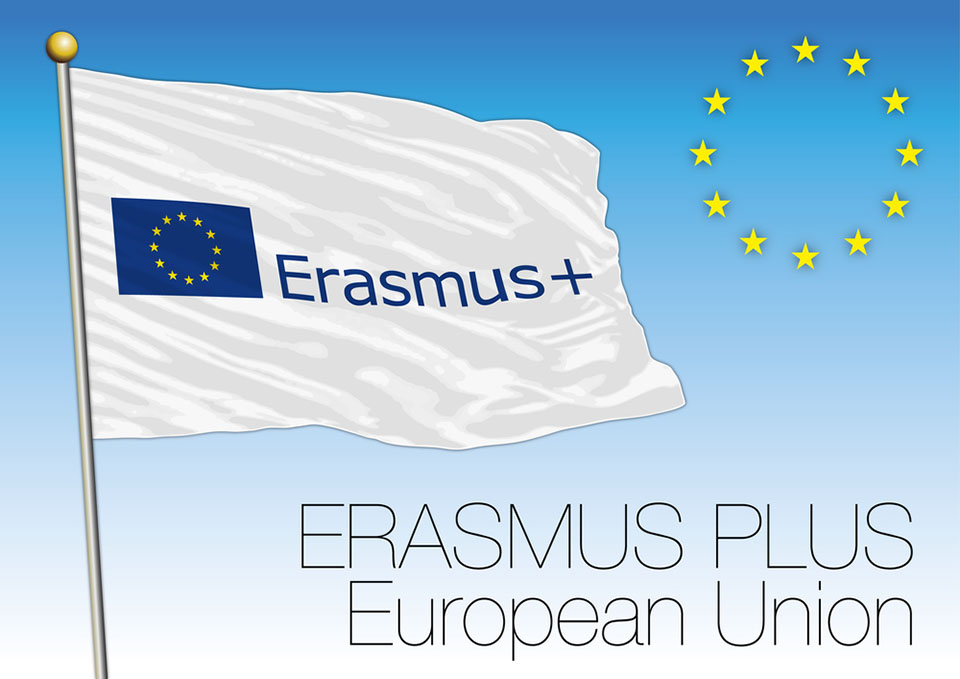6 Facts to Know if Interested in Erasmus+

Student exchange programmes have become increasingly popular all over the world. They have been hailed as a learning opportunity for students who can educate themselves by living and studying in different environments throughout their academic course. Currently, you will find a variety of student exchange programmes, domestic and international, and one such programme is Erasmus.
Erasmus is a popular and one of the most competitive student exchange programmes in the world. It has increasingly gained a reputation for being one of the smoothest such programmes out there. But, what really Erasmus is. Well, we will try to uncover the world of Erasmus. If you are a student, this article will be very useful to you.
Here are 6 things about Erasmus you should know.
- The name itself
Erasmus is basically a backronym. Its full form is European Community Action Scheme for the Mobility of University Students. Its name, however, also seeks inspiration from a famous scholar of philosophy and theology, Desiderius Erasmus, who is known to have been a prominent figure during the Renaissance. If you see the logo of the programme, you will notice a figure which is of no one else but the eponymous philosopher. - The aim of the programme
The full name of the programme is suggestive of its purpose. But, I will elaborate a little more. Erasmus was founded in the year 1987 and is essentially a student exchange programme. It encourages the mobility of students within the European community by collaborating with thousands of universities across the continent. Its new variant, Erasmus+ has effectively collated all the ongoing schemes for sport, education, etc and was to last from 2014 to 2020. - Requirements
Once you have been admitted to the programme, you are expected to spend three months minimum studying in another European country. If not this, you can do an internship for two months minimum. If you choose the former, you will be part of the Student Mobility for Studies programme; if the latter, it shall be called Student Mobility of Placement. So long as you adhere to the terms, your time spent in another European country will receive recognition in your country. - Financial benefits
A major concern could be that you might end up paying for the said programme. Well, under the Erasmus programme, you are not required to pay extra tuition fees to the university you plan to visit. There is also a provision for students to apply for financial assistance to cover major expenses incurred during their time abroad. Extraordinary expenses incurred by those with special needs can also be covered. There are also websites, collectively called Erasmate, where student-participants of the programme can connect with people and discuss accommodation. As of today, millions of students across the continent have signed up for the programme, and a great many of these students have received some or the other form of financial support. - How things changed from Erasmus to Erasmus+
True, when Erasmus was introduced, the aim was to enhance the mobility of students across the European community. But, it has expanded into a full-fledged student exchange programme offering a wide range of schemes to help not only students but also staff, teachers, and volunteers. You might know this but the transition of Erasmus to Erasmus+ has been highly positive as the latest reports show that the Erasmus+ generation is among the most employable lot in the world. Reports show that three-fourth of the graduates of the programme were successfully placed within three months of graduation. - Erasmus programme will look after you
Students may feel intimidated by the alien environment and want to connect with people placed under similar circumstances. Under the aegis of Erasmus, there is a system of Erasmus Student Network (ESN). It is quite likely that there will be an ESN branch in your host country. You should connect to the network as it can help you to keep yourself updated about the latest events, etc. However, the most useful attribute of ESN is that it connects the participants of Erasmus. You will be put in touch with Erasmus students in your host country, and this can help you feel less alienated.
Have you read?
Richest People In Africa.
World’s Richest football clubs.
Bring the best of the CEOWORLD magazine's global journalism to audiences in the United States and around the world. - Add CEOWORLD magazine to your Google News feed.
Follow CEOWORLD magazine headlines on: Google News, LinkedIn, Twitter, and Facebook.
Copyright 2025 The CEOWORLD magazine. All rights reserved. This material (and any extract from it) must not be copied, redistributed or placed on any website, without CEOWORLD magazine' prior written consent. For media queries, please contact: info@ceoworld.biz








